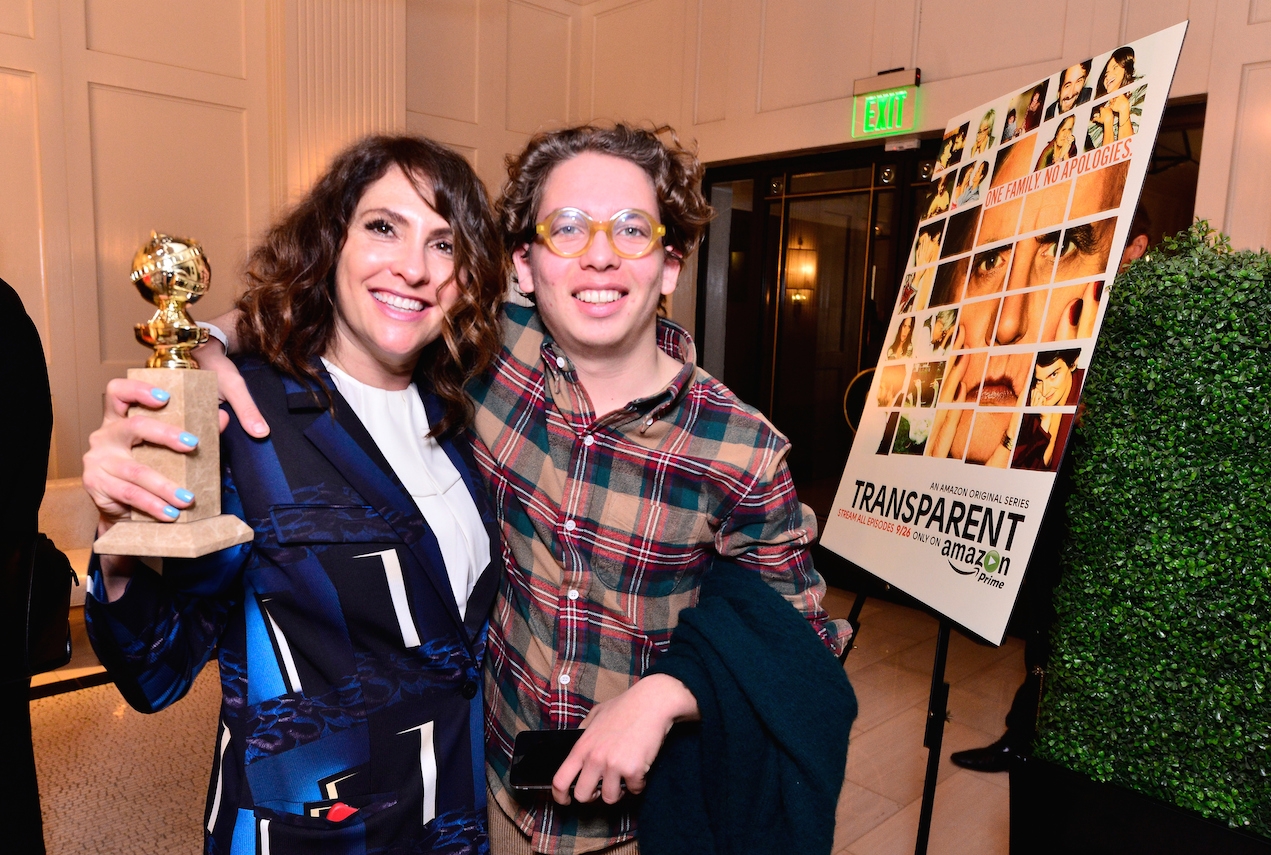LOS ANGELES (JTA) – Actors including George Clooney, Kathy Bates and Helen Mirren wore “Je Suis Charlie” buttons at the Golden Globes Awards ceremony in memory of the 12 people killed in the Charlie Hebdo attack in Paris.
The terrorist killings in the French capital in the preceding days, which also included an attack on a kosher supermarket that killed four Jewish men on Friday, lent a serious undertone on Sunday to the usually lighthearted affair hosted by the Hollywood Foreign Press Association.
Among those killed last week at Charlie Hebdo, a satirical magazine, was the celebrated French Jewish cartoonist Georges Wolinski.
In the awards, the winner for Best TV Series-Comedy was “Transparent,” written and directed by Jill Soloway. The series revolves around a Jewish family with a patriarch who tells his three grown children that he is adopting a female persona.
The Forward in a headline called “Transparent” “the Jewiest Show Ever.”
Maggie Gyllenhaal topped the field for best performance by an actress in a miniseries or TV movie for her performance in “The Honourable Woman.” Gyllenhaal, who has a Jewish mother, portrays Nessa Stein, a Jewish businesswoman who tries to bridge Middle East hostilities by linking Israelis and Palestinians through a communications network.
The biggest, though uncredited, Jewish winner of the evening may have been the late novelist Stefan Zweig (1881-1942), whose writings inspired director Wes Anderson’s “The Grand Budapest Hotel,” winner of the Best Motion Picture-Comedy award. Sharing in the triumph was Jewish producer Scott Rudin.
Israel’s entry in the foreign-language film competition made the shortlist of five finalists with “Gett: The Trial of Viviane Amsalem,” chronicling the five-year struggle by an Orthodox woman in Israel to convince a rabbinical court to grant her a Jewish divorce from her husband. “Gett” lost out to Russia’s “Leviathan,” the story of a working man fighting the corrupt mayor of his town.
Another finalist, and early favorite, in the category was Poland’s entry, “Ida,” the story of a young Polish woman about to take her vows as a nun who discovers that she is the daughter of Jewish parents killed in the Holocaust.

Help ensure Jewish news remains accessible to all. Your donation to the Jewish Telegraphic Agency powers the trusted journalism that has connected Jewish communities worldwide for more than 100 years. With your help, JTA can continue to deliver vital news and insights. Donate today.






